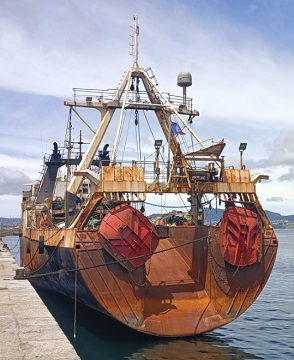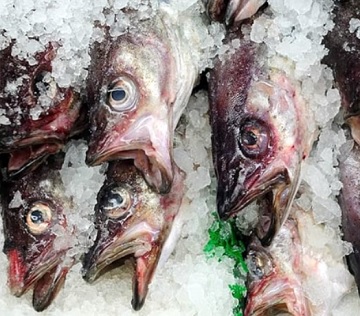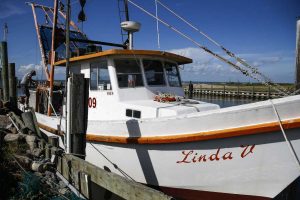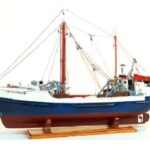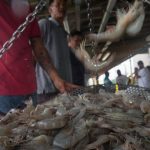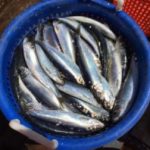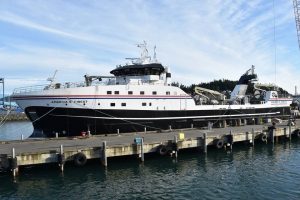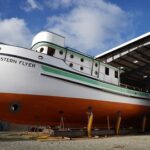Tag Archives: Spain
The ‘sustainable’ cod in your shopping basket may be no such thing – new study reveals mislabelling
 Cod sold in some European supermarkets is being mislabeled and is actually fished far from its claimed origin, according to our new study. We sampled cod sold in Germany, Spain, France and the UK and found that about 30% of it originated in a different location. Seafood mislabeling, in which one species is sold as another, is a common problem. It may happen by mistake or by deliberate fraud, in which case, there is at least hope for improvement, as various DNA methods are now available for testing species. But our new research highlights another problem: the mislabeling of geographical origin. As with species mislabeling, this issue can affect the sustainable management of fisheries, the conservation of fish in the wild and consumer trust. more, >>CLICK TO READ<< 14:53
Cod sold in some European supermarkets is being mislabeled and is actually fished far from its claimed origin, according to our new study. We sampled cod sold in Germany, Spain, France and the UK and found that about 30% of it originated in a different location. Seafood mislabeling, in which one species is sold as another, is a common problem. It may happen by mistake or by deliberate fraud, in which case, there is at least hope for improvement, as various DNA methods are now available for testing species. But our new research highlights another problem: the mislabeling of geographical origin. As with species mislabeling, this issue can affect the sustainable management of fisheries, the conservation of fish in the wild and consumer trust. more, >>CLICK TO READ<< 14:53
A new purse seiner from Galicia for Angola
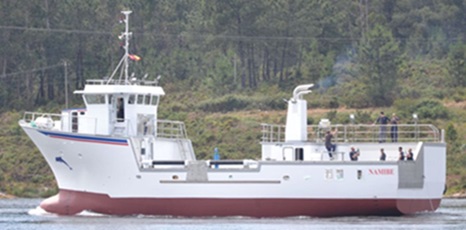 F/V Delta II is already in its home port of Namibe in Angola. It arrived there from Galicia – specifically from the small town of Catoira. This village of only 3300 inhabitants is home to Astilleros del Ulla, a small company focused on building vesels for export. The new purse seiner has a length of 23.95 metres in length and an 8-metre beam, designed to meet Angolan regulations which set limitations on the length and capacity of fishing vessels. Photos, information, more, >>CLICK TO READ<< 12:46
F/V Delta II is already in its home port of Namibe in Angola. It arrived there from Galicia – specifically from the small town of Catoira. This village of only 3300 inhabitants is home to Astilleros del Ulla, a small company focused on building vesels for export. The new purse seiner has a length of 23.95 metres in length and an 8-metre beam, designed to meet Angolan regulations which set limitations on the length and capacity of fishing vessels. Photos, information, more, >>CLICK TO READ<< 12:46
DFO Affirms Canada’s Control Over Northern Cod Management
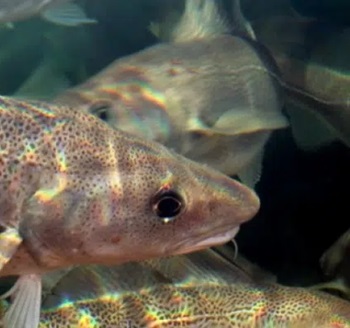 The Department of Fisheries and Oceans is weighing in following concerns raised about northern cod management by provincial fisheries minister Gerry Byrne. A recent EU news release suggested that North Atlantic Fishery Organization (NAFO) was making the management decisions when it came to northern cod, but DFO says there is no debate that Canada manages the stock. According to the federal department, Canada alone completes the scientific assessment of the stock and sets the annual total allowable catch. more, >>CLICK TO READ<< 07:31
The Department of Fisheries and Oceans is weighing in following concerns raised about northern cod management by provincial fisheries minister Gerry Byrne. A recent EU news release suggested that North Atlantic Fishery Organization (NAFO) was making the management decisions when it came to northern cod, but DFO says there is no debate that Canada manages the stock. According to the federal department, Canada alone completes the scientific assessment of the stock and sets the annual total allowable catch. more, >>CLICK TO READ<< 07:31
Fisheries Minister Taken Aback by EU Boast that NAFO Has Management of Northern Cod Fishery
 The province’s fisheries minister is encouraging Newfoundlanders and Labradorians to rally for joint management of the stocks off the province’s coast after learning that NAFO has taken control of management of the northern cod fishery. A recent European Union release following Northwest Atlantic Fisheries Organization meetings in Halifax indicates that based on an EU-Canada proposal on northern cod, NAFO “reopened the fishery and established a revised sharing arrangement.” It goes on to say that “it was fair and necessary to increase the EU share to reflect the current composition of the EU.” The release also indicates that NAFO is increasing fishing opportunities for 3M cod outside Canada’s 200 mile limit. more, >>CLICK TO READ<< 09:08
The province’s fisheries minister is encouraging Newfoundlanders and Labradorians to rally for joint management of the stocks off the province’s coast after learning that NAFO has taken control of management of the northern cod fishery. A recent European Union release following Northwest Atlantic Fisheries Organization meetings in Halifax indicates that based on an EU-Canada proposal on northern cod, NAFO “reopened the fishery and established a revised sharing arrangement.” It goes on to say that “it was fair and necessary to increase the EU share to reflect the current composition of the EU.” The release also indicates that NAFO is increasing fishing opportunities for 3M cod outside Canada’s 200 mile limit. more, >>CLICK TO READ<< 09:08
Nodosa delivers Falklands factory trawler
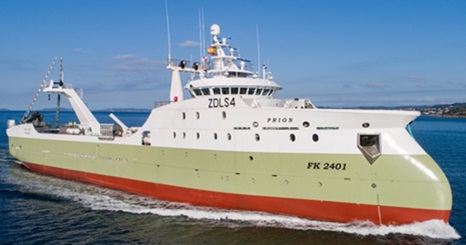 The largest new vessel to join the Falklands fleet operating on squid in the South Atlantic has been delivered by the Nodosa Shipyard in Galicia to the Petrel Fishing Company, a joint venture between Percapuerta Group in Vigo and its Falklands partner, the Fortuna Group. The 85-metre Prion has a 14-metre beam and is the yard’s own design. The handover of the new vessel took place in the Port of Marín, chaired by the President of the Xunta Alfonso Rueda, and attended by Pescapuerte Group president Jose Puerta Prado, Stuart Wallace representing the Fortuna Group, and José Ramón Regueira on behalf of Nodosa, along with around 400 guests who included staff of the yard, the two companies, suppliers and various authorities. more, >>CLICK TO READ<< 12:25
The largest new vessel to join the Falklands fleet operating on squid in the South Atlantic has been delivered by the Nodosa Shipyard in Galicia to the Petrel Fishing Company, a joint venture between Percapuerta Group in Vigo and its Falklands partner, the Fortuna Group. The 85-metre Prion has a 14-metre beam and is the yard’s own design. The handover of the new vessel took place in the Port of Marín, chaired by the President of the Xunta Alfonso Rueda, and attended by Pescapuerte Group president Jose Puerta Prado, Stuart Wallace representing the Fortuna Group, and José Ramón Regueira on behalf of Nodosa, along with around 400 guests who included staff of the yard, the two companies, suppliers and various authorities. more, >>CLICK TO READ<< 12:25
UK fishermen ‘at the very bottom of the heap’
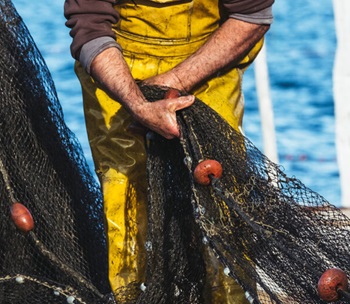 A paper published in the scientific journal Marine Policy, with a wide group of authors, some attached to anti-fishing NGOs, shows starkly how bad a deal UK fishermen have in Europe. The UK EEZ is a key fishing ground for fleets from the EU and Norway, which are provided with huge amounts of government support to fish in British and, to a lesser extent, Irish waters. Ireland is the only country remaining within the EU that is a net ‘subsidy sink’, with vessels fishing what would be the Irish EEZ – were Ireland independent – receiving more financial support to fish there than the Irish fleet itself receives. But the figures for Ireland are dwarfed by those for the UK, which, the study says, is an ‘outlier’ worldwide. There is otherwise a pattern of richer nations – in particular China, Spain, Korea, Japan and the USA – being given support to extract fish from much poorer developing countries. The paper doesn’t attempt to explain quite why the UK is such an outlier. more, >>CLICK TO READ<< 10:29
A paper published in the scientific journal Marine Policy, with a wide group of authors, some attached to anti-fishing NGOs, shows starkly how bad a deal UK fishermen have in Europe. The UK EEZ is a key fishing ground for fleets from the EU and Norway, which are provided with huge amounts of government support to fish in British and, to a lesser extent, Irish waters. Ireland is the only country remaining within the EU that is a net ‘subsidy sink’, with vessels fishing what would be the Irish EEZ – were Ireland independent – receiving more financial support to fish there than the Irish fleet itself receives. But the figures for Ireland are dwarfed by those for the UK, which, the study says, is an ‘outlier’ worldwide. There is otherwise a pattern of richer nations – in particular China, Spain, Korea, Japan and the USA – being given support to extract fish from much poorer developing countries. The paper doesn’t attempt to explain quite why the UK is such an outlier. more, >>CLICK TO READ<< 10:29
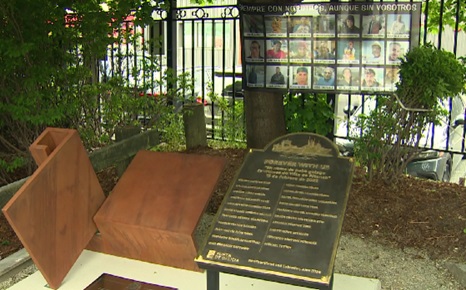
Family who lost loved ones on Spanish fishing vessel help unveil new N.L. monument
A new monument honouring 21 lives lost on a Spanish fishing boat that sank off the coast of Newfoundland in 2022 was unveiled in St. John’s on Friday by a Spanish delegation that included family of the deceased. The 50-metre-long fishing boat, called the Villa de Pitanxo, operated out of northwest Spain’s Galicia province. It sank at around 2:30 a.m. NT on Feb. 15, 2022. The crew was made up of 16 Spaniards, five Peruvians and at least three Ghanaians, and is the largest fishing disaster in Galicia in the last 50 years. Nine bodies were recovered from the water and repatriated to Spain, but the remaining 12 were never found. “The memorial is very important for the families. and all people from the sea. Fishermen, our families of the sea,” said María José de Pazo Friday. She lost her father, Francisco. Video, more, >>CLICK TO READ<< 18:36
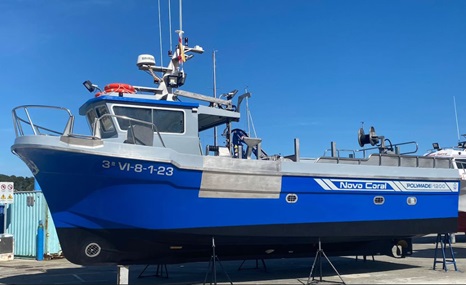
Newbuild Joins Galicia’s Coastal Fleet
Galicia’s small-scale fleet is one of the oldest in Europe and the tendency year after year is to take out old units. There’s a continuous decline of this sector throughout Spain and few dare to take the step to build a new boat. However, there are still some brave ones – and Astilleros Polymade has just delivered F/V Novo Coralto its young owner. Although it is not yet at sea, the vessel is already attracting the attention of many fishermen and interested visitors to the port of Vigo. This is not so much because of its size, as it has small dimensions, but because this is a recent newbuild – something that, unfortunately, has become unusual. Photos, more, >>CLICK TO READ<< 13:21
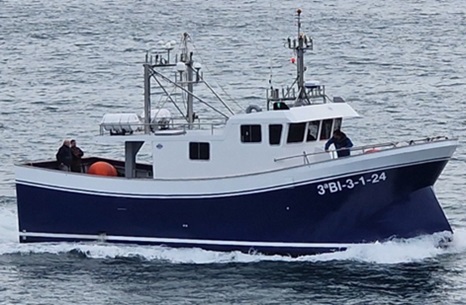
Versatile Inshore Boat for the Basque Country Fleet
Although the general trend in the fishing sector in the Basque Country and the rest of Spain is to export or decommission, some owners from the town of Arminza, in the province of Vizcaya (north of Bilbao), decided to build a new vessel. Made of GRP, Beti Itsasoko has a 14-metre length and a beam of 5 metres, it has a number of features that set it apart from the boats with which it shares its fishing grounds. To begin with, it has an unusual modern design for Spanish waters, with an inverted bow, designed for more comfortable operation by minimising pounding as it cuts through the waves. On the other hand, the vessel measures 14,7gt and is configured to have two independent engines, which gives it greater maneuverability as each drives its own shaft, propellers and rudder. It also has a capacity for 8000 litres of fuel and a hold with space for almost 9 tonnes of fish in the chilled fishroom. Photos, more, >>click ti Read<< 16:66
Spanish fishing boat stopped by Gibraltar police ignites war of words
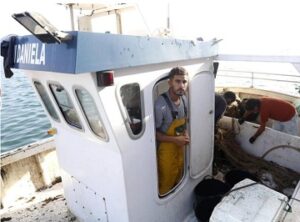 Relations between Gibraltar and politicians across the border in Spain soured this week after Gibraltar police took action against a Spanish fishing vessel which they claimed had been repeatedly entering British territorial water off the Rock. Spanish local and regional politicians have angrily denied the small vessel called Mi Daniela was fishing in Gibraltarian waters and asked Gibraltar for an explanation. The Royal Gibraltar Police said that on Monday morning this week the skipper was stopped and reported over a series of alleged offences in a joint operation with the Rock’s Customs and Environmental Protection officers. >click to read< 14:28
Relations between Gibraltar and politicians across the border in Spain soured this week after Gibraltar police took action against a Spanish fishing vessel which they claimed had been repeatedly entering British territorial water off the Rock. Spanish local and regional politicians have angrily denied the small vessel called Mi Daniela was fishing in Gibraltarian waters and asked Gibraltar for an explanation. The Royal Gibraltar Police said that on Monday morning this week the skipper was stopped and reported over a series of alleged offences in a joint operation with the Rock’s Customs and Environmental Protection officers. >click to read< 14:28
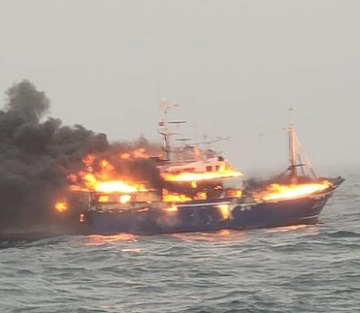
15-Man Crew of Galician Fishing Boat Rescued in British Waters After Fire Breaks Out
There were no reports of any injuries after the incident in the Gran Sol. The sailors from the F/V Nuevo San Juan fishing boat that is based in the Lugo town of Burela were rescued by another fishing vessel, the F/V Nuevo Confurco. As soon as the blaze broke out the 15 crew members abandoned the ship and took to the lifeboats. While they were rescued safe and sound, material possessions were regrettably lost in the incident. The longline trawler is 31.5 metres in length and specialises in fishing for hake. >click to read< 13:47
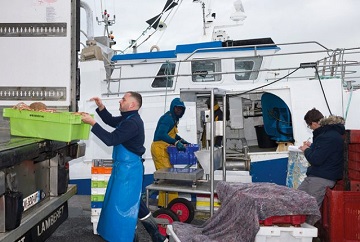
The European Union’s Plan to Ban Bottom Fishing is Causing Widespread Outrage
The plan, which seeks to ban bottom trawling in protected areas, has caused widespread demonstrations, disruption of work in ports, and the launch of a protest movement by fishermen in France called “Blocked Ports”. Although the Commission’s proposals do not represent new legislation, and will not be implemented soon in a way that satisfies some environmental protection non-governmental organizations, they have been met with strong opposition from a number of member states. There was outrage in Germany, Spain, Portugal, Italy, Ireland and Denmark, who feared the plan would endanger the entire fishing industry. The “Marine Action Plan” for sustainable fishing was announced on February 12, and it includes initiatives to phase out deep-sea trawling in protected areas. >click to read< 08:51
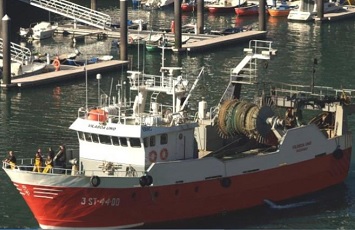
Two dead, one seriously injured and one missing in the shipwreck of a fishing boat off the coast of Santander
The coordination center of Maritime Rescue of Santander received the notice of the shipwreck shortly before five in the morning. The F/V Vilaboa Uno had an emergency six miles off the Cantabrian coast. Immediately other fishing boats that were in the area and maritime rescue personnel have approached the place. They have only been able to rescue seven crew members alive, one of them seriously injured. Two of the sailors have been killed and a third remains missing. After receiving the warning, the alert was distributed among the boats in the area. Several fishing boats, a Maritime Rescue ship and a helicopter have been transferred there at dawn. The fishing vessel F/V Siempre Nécora, the first to arrive, managed to locate seven of the crew. The Phoenix gave with an eighth and a boat of the Pilots of the Port to the ninth Video, >click to read< 11:25
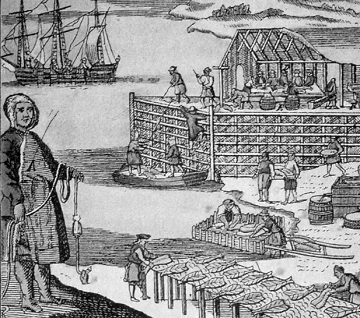
The Fishing Revolution and the Origins of Capitalism
Fishing is older than humanity. Fishing for sale rather than consumption developed along with the emergence of class-divided urban societies about five thousand years ago. Getting fish to towns and cities where people could not catch it themselves required organized systems for catching, cleaning, preserving, transporting, and marketing. This was particularly true in the Roman Empire, where serving fresh fish at meals was a status symbol for the rich, and fish preserved by salting was an essential source of protein for soldiers and the urban poor. In addition to boats, an extensive shore-based infrastructure was needed to provide fish for millions of citizens and enslaved people: “elaborate concrete vats and other remains of ancient fish-processing plants have been found all along the coasts of Sicily, North Africa, Spain, and even Brittany on the North Atlantic. The first surviving account of fish depletion caused by overfishing was written in Rome, about 100 CE. >click to read< 10:29

F/V Villa de Pitanxo: “this is very similar to the Alvia, the Yak-42 and Spanair, politicians who do not assume their responsibilities”
The families of the 21 deceased in the Villa de Pitanxo traveled this Friday to the Sub delegation of the Government in Pontevedra to read a manifesto in which they show their discomfort with the central Government of Pedro Sánchez for failing to fulfill its commitment to “do everything possible and impossible” to investigate what happened. The promise was made by the president on the night of February 21, when the nine bodies located in Terranova arrived by plane to Santiago de Compostela, and almost six months later they remind him that “he does not fulfill his commitment.” Kevin González, son of one of those killed in the shipwreck, read the statement on behalf of the 21 families of those killed in the shipwreck, accompanied by a small representation of relatives and two banners with the faces of the sailors who did not survive the sinking and with their claims. Photos, >click to read< (you may need to click translate)16:27
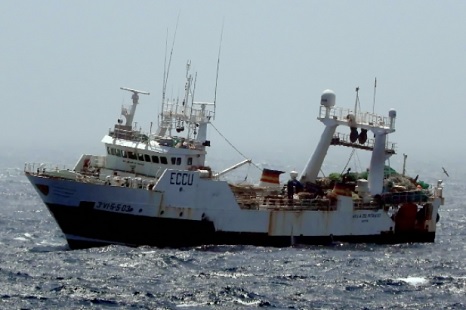
How did a captain survive? – The mysterious death of 21 men on a Spanish fishing boat
On 15 February, the Villa de Pitanxo, a Galician fishing boat sank off the coast of Canada in mysterious circumstances. The families of 21 men who lost their lives that night are campaigning to ensure the truth of the tragedy is revealed and that those responsible face justice. Investigators have been trying to understand what caused the accident and surviving crew members have very different versions of what went wrong. Video, >click to watch< 10:49
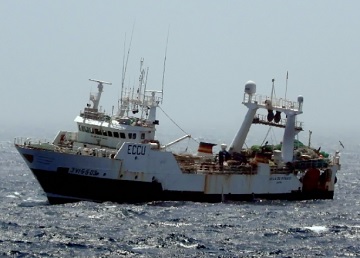
F/V Villa de Pitanxo: Spanish fishing tragedy survivors appear in court amid negligence claims
The survivors of Spain’s worst fishing tragedy in four decades appeared in court on Monday as part of an investigation into claims the boat’s captain was guilty of negligence. Twenty-one people died when the Villa de Pitanxo, a 50m vessel from the northwestern region of Galicia, sank around 450km off the coast of Newfoundland, in Canada, in February. Three of the 24-strong crew survived and were found floating in a life raft: the boat’s captain, Juan Padín, his nephew, Eduardo Rial, and Samuel Kwesi. Nine bodies were recovered. >click to read< 16:30
Southern Ocean Longliner Follows Successful Formula
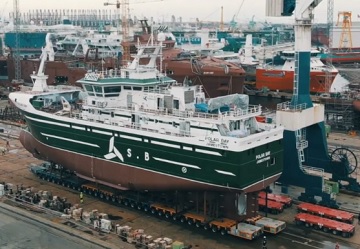 A new Saint Helena-registered longliner is heading south to take part in the fishery for Patagonian toothfish in the Southern Ocean. Built for Spanish owners, F/V Polar Bay is the latest in a long series of longliners designed by Marin Teknikk and built at Tersan, and this has been shown to be a successful formula. Accommodation on board is completed to a high standard for a crew of up to 30, and F/V Polar Bay is designed to spend extended periods at sea when required as the fishery covers a variety of fishing grounds in the Southern Ocean. photos, video, >click to read< 17:48
A new Saint Helena-registered longliner is heading south to take part in the fishery for Patagonian toothfish in the Southern Ocean. Built for Spanish owners, F/V Polar Bay is the latest in a long series of longliners designed by Marin Teknikk and built at Tersan, and this has been shown to be a successful formula. Accommodation on board is completed to a high standard for a crew of up to 30, and F/V Polar Bay is designed to spend extended periods at sea when required as the fishery covers a variety of fishing grounds in the Southern Ocean. photos, video, >click to read< 17:48
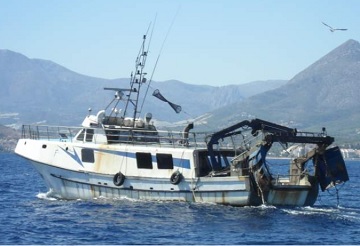
Fuel: Entire Spanish fishing fleet to stay in port until next Wednesday 23
Basilio Otero, the president of the National Federation of Fishermen’s Guilds, announced this Friday, March 18, that the Spanish fishing fleet will remain in port until next Wednesday 23. This action comes as a result of the “very serious moment” that the fishing sector is suffering after the rise in fuel prices. “The sustainability of the fishing sector right now is in your hands”, he warned the minister, from whom he has also demanded, “firm, forceful, and immediate proposals, or the fishing sector is going to sink”. >click to read< 08:42

F/V Villa de Pitanxo: Repatriation of dead sailors stalled after bodies test positive for COVID-19
Some of the bodies of Spanish and Peruvian sailors who drowned in a shipwreck off Newfoundland’s coast last week are reportedly not being returned to their families right away because their corpses tested positive for COVID-19. The Spanish fishing vessel Villa de Pitanxo sank 460 kilometres off the coast of Newfoundland on Feb 15. Three fishermen were rescued and nine bodies were recovered, with 12 still missing. Four of the bodies, including two Spaniards and two Peruvians, reportedly tested positive for COVID-19 after being recovered. >click to read< 11:07
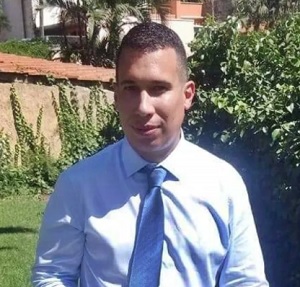
F/V Villa de Pitanxo: Manuel Navarro to his sister, “Don’t tell dad, this is hell, a very big storm”
“Don’t tell dad or mom, but this is hell, a very big storm,” José Manuel Navarro, the biologist at Villa de Pintaxo, told his sister Mónica last Saturday in what was his last communication before the shipwreck of the fishing boat, which occurred on Tuesday. Desperate for the lack of news, José Navarro, the father of the scientist on board, and Mónica, the sister, have asked the Government through Canarian Television to mobilize media to that area of the Atlantic, opposite Newfoundland, to search for the remains of the fishing boat and the missing crew members. >click to read< 07:57
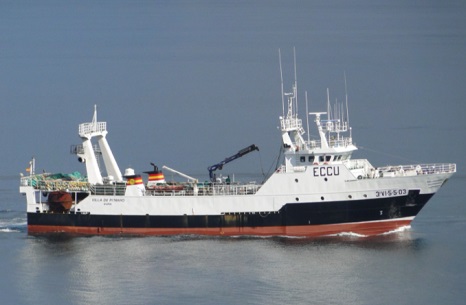
F/V Villa de Pitanxo: Deadly sinking of trawler blamed on main engine failure
A Spanish fishing trawler sank in stormy waters off Canada last week, leaving 21 sailors dead or missing, because its engine failed, the owner of the vessel said Monday. There were 24 people onboard the Villa de Pitanxo when it went down off the eastern coast of Canada early on Tuesday in Spain’s worst fishing tragedy in nearly 40 years. Padin has said the accident happened when the ship attempted to turn, the Nores Marin group, the company based in Spain’s northwestern region of Galicia which owns the ship, said in a statement. “The main engine suddenly stopped, leaving the boat without propulsion or direction, exposed to the wind and the waves, suffering blows from the sea that caused it to tilt and sink very quickly,” >click to read< 16:16

F/V Villa de Pitanxo: Survivors, bodies from sunken Spanish fishing vessel to be repatriated this week
Spanish officials arrived in Newfoundland and Labrador on Sunday to begin the process of repatriating the survivors and the bodies recovered from the sinking of a Spanish fishing vessel. Deputy Premier Siobhan Coady greeted members of the flight crew after they arrived in the province. Meanwhile, Alfredo Martinez Serrano, the Spanish Ambassador to Canada, landed in St. John’s late Saturday afternoon. The Villa de Pitanxo fishing vessel sank in heavy seas off the coast of Newfoundland early Tuesday. >click to read< 08:11

Sole survivor of Galway Bay fishing tragedy among those feared drowned off Newfoundland
One of the fisherman feared dead when a Spanish fishing vessel sank off the Newfoundland coast earlier this week was the sole survivor of another maritime tragedy in Galway Bay over two decades ago. In October 2000, Ricardo Arias Garcia, a native of Marin in Spain, was plucked from the Skerd Rocks in outer Galway Bay by the Irish Coast Guard helicopter operating from Shannon. Last Tuesday, he was one of 24 crew on board the trawler Villa de Pitanxo when it sank 280 miles off the coast of Newfoundland in rough seas. Named by Spanish media as one of the fatalities, Mr Arias Garcia lost all of his fellow crewmates when the F/V Arosa sank in a storm off Galway Bay on October 3, 2000. >click to read< 11:06
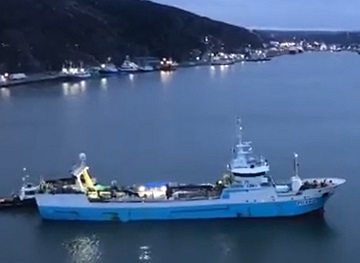
F/V Villa de Pitanxo: Fishing vessel arrives in St. Johns with three survivors and seven deceased crewmen
The F/V Playa de Menduíña II, in which three survivors and seven of the deceased of the F/V Villa de Pitanxo were traveling, docked at 11.30 a.m. on Saturday in the port of San Juan de Terranova (St John’s). On F/V Playa de Menduíña II traveled the survivors of the F/V Villa de Pitanxo, the skipper of the ship, Juan Padín; his nephew, Eduardo Rial Padín; and the young Ghanaian Samuel Kwesi. After carrying out the appropriate procedures, the three left the Vigo fishing boat after five o’clock in the afternoon, six hours after the arrival at the port. After going down to port, the three were taken to an area hospital for a medical check-up. >click to read< 17:31
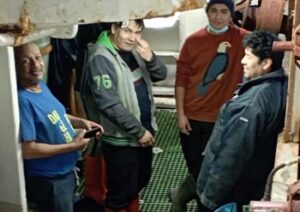 The crew of the F/V Villa de Pitanxo, one by one: from Raúl, only 24 years old, to Francisco, of retirement age – Little by little, the identities of those who were on board the ship that sank in Newfoundland and their stories are becoming known. Most have young children and some, like Samuel, had not yet been able to meet their last baby. >click to read<
The crew of the F/V Villa de Pitanxo, one by one: from Raúl, only 24 years old, to Francisco, of retirement age – Little by little, the identities of those who were on board the ship that sank in Newfoundland and their stories are becoming known. Most have young children and some, like Samuel, had not yet been able to meet their last baby. >click to read<

Pope Francis Laments ‘Tragic’ Shipwreck of F/V Villa de Pitanxo
“The Holy Father expresses his heartfelt condolences, as well as his solidarity, in these moments of sorrow.” The pope “prays to God for the eternal repose of the victims and expresses his closeness to the families who mourn their loved ones,” The Galicia-based trawler Villa de Pitanxo sank early Tuesday some 250 miles off the coast of Newfoundland with just three known survivors out of a crew of 24, making the disaster Spain’s worst fishing tragedy in 38 years. Current theories suggest that the ship, which was loaded with a good catch of halibut, was weighed down at the stern and, complicated by waves reaching eight meters in height, was flooded and sank in a matter of minutes. >click to read< 09:01
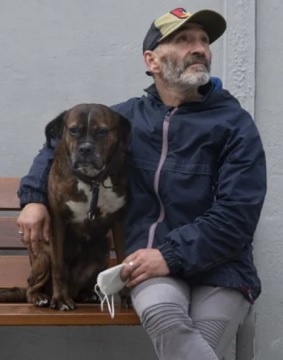
A Spanish fisherman’s life on the high seas: harsh, risky and badly paid
The tragedy, Spain’s worst fishing accident in nearly 40 years which claimed 21 lives and left only three survivors when their ship foundered in stormy waters off Newfoundland, has thrown into sharp relief the risks and harsh working conditions faced by fishermen. Often these deep-sea fishermen will spend months at sea, far from their families. “You’re away for so long: you go out to sea when your child’s just been born and when you come back, he’s already doing his first communion,” jokes Martínez as he takes a coffee at a bar popular with fishermen in Marín. He used to spend six-month stints at sea fishing for cod off Newfoundland but is currently not working after having a hernia operation. commercial fishing. >click to read< 14:04






